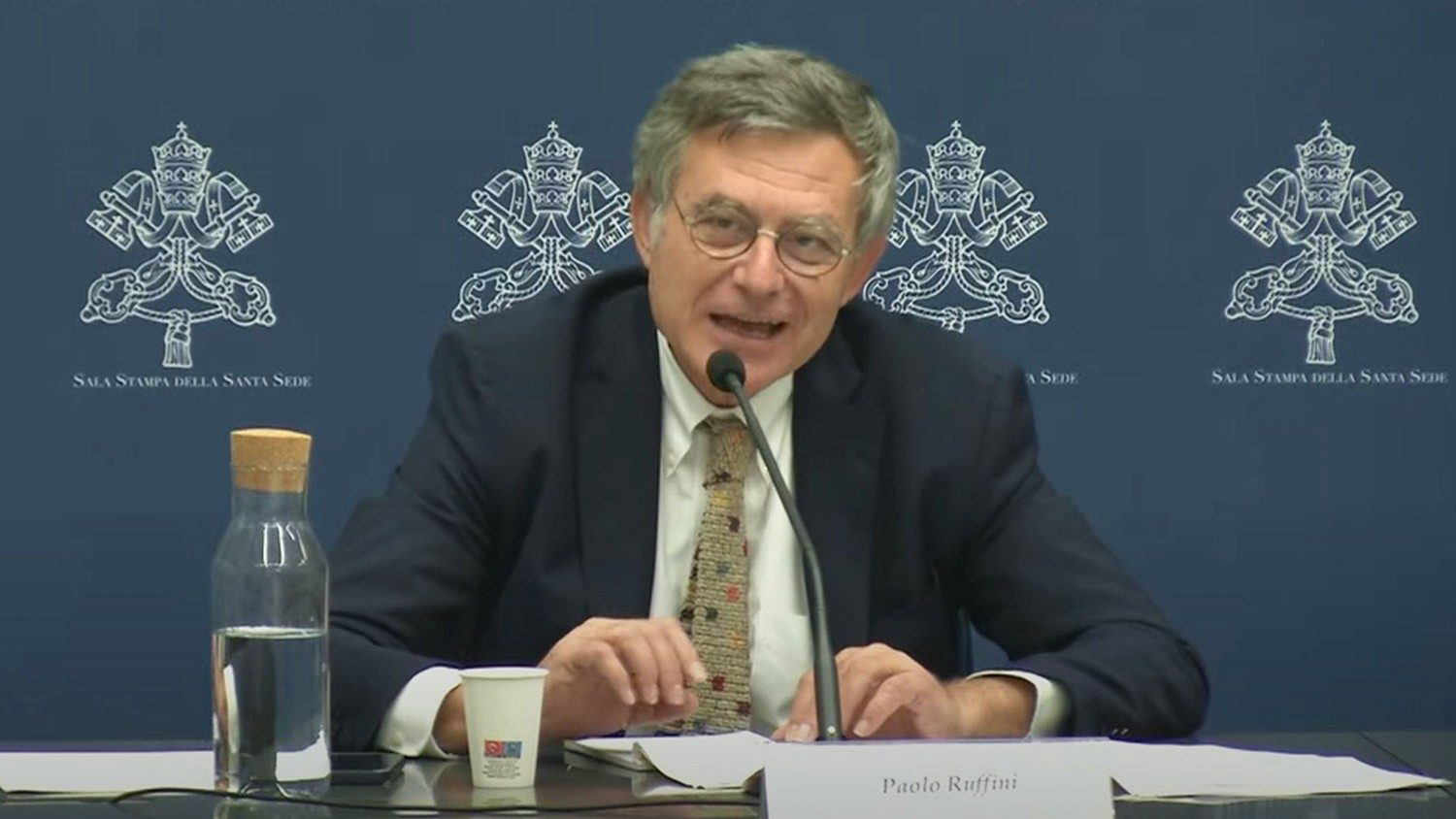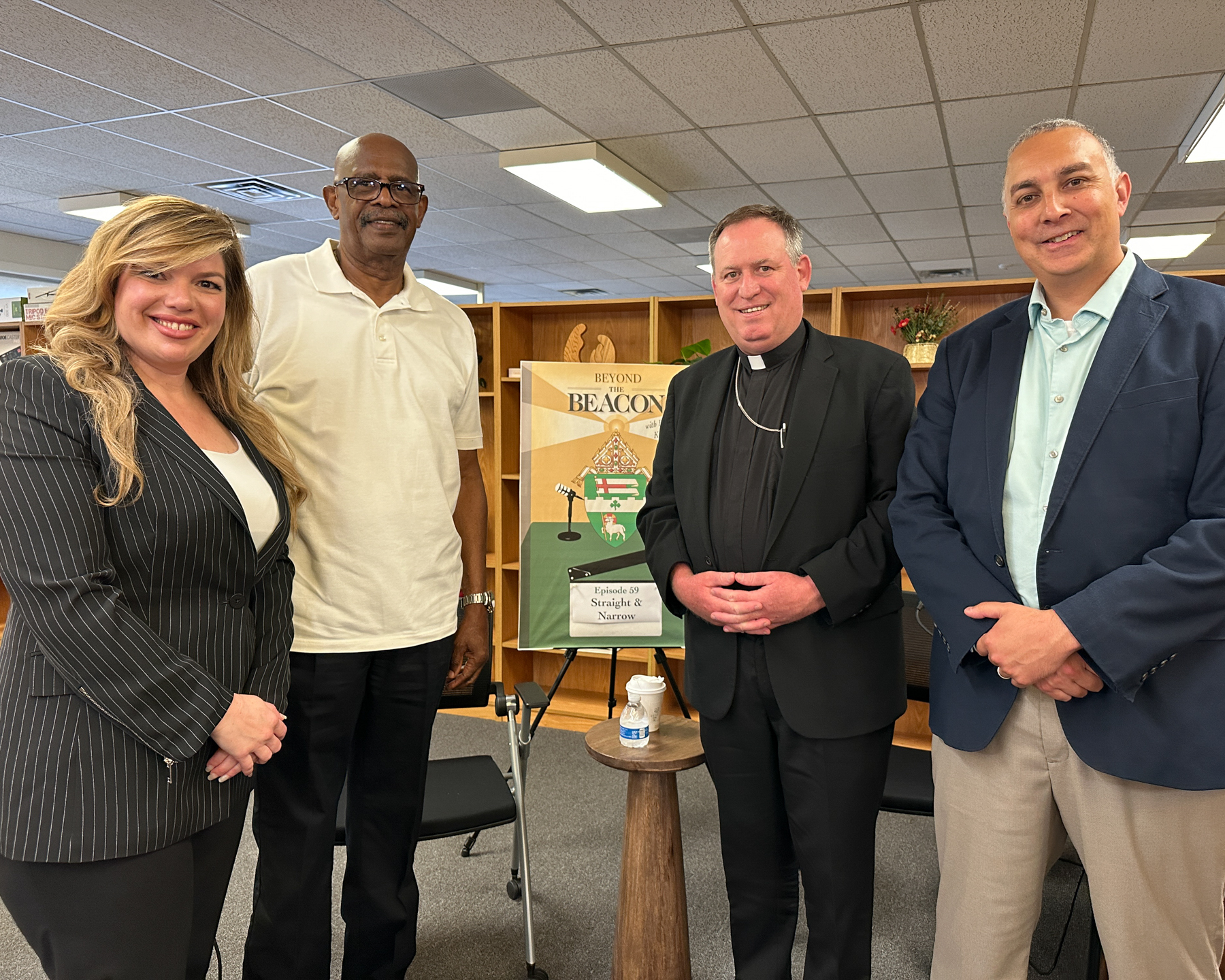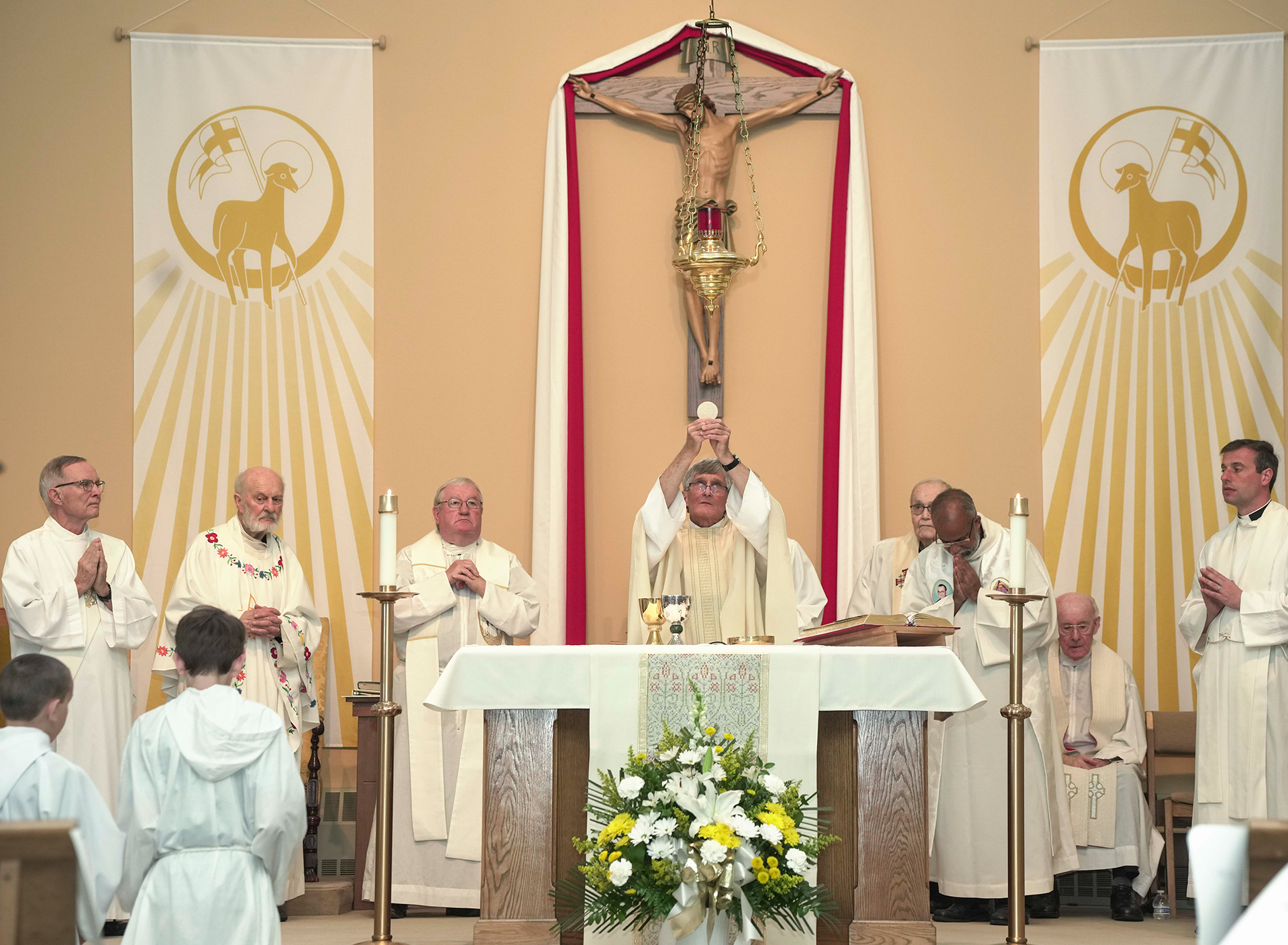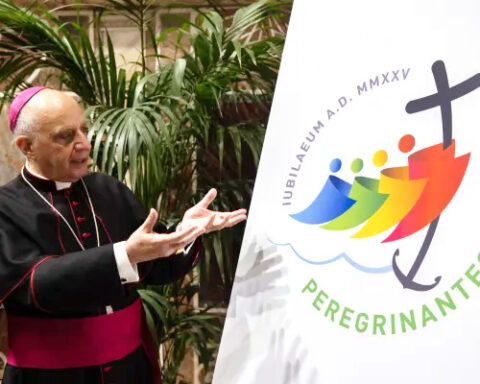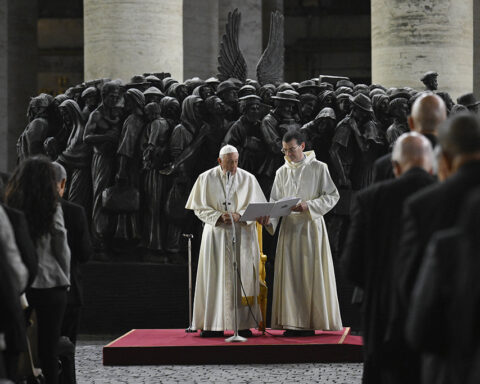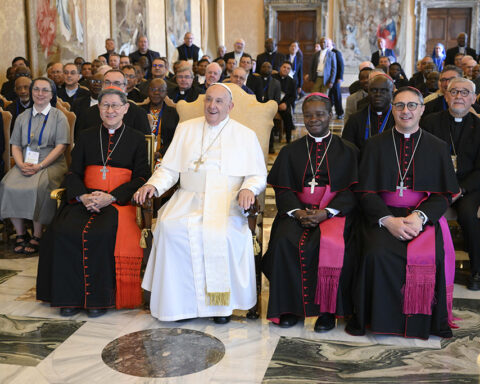As the Catholic Media Conference wraps up in the US city of Atlanta, Dr. Paolo Ruffini, Prefect of the Dicastery for Communication, invites Catholic media professionals to orient hearts toward communion through a Christian interpretation of events.
By Devin Watkins
VATICAN MEDIA
Dozens of Catholic journalists and media professionals from across North America gathered in Atlanta, Georgia, for the annual Catholic Media Conference, held on June 18–21.
The event offered attendees the chance to keep abreast of emerging trends in the media landscape and build connections through networking.
Presentations ranged from the use of AI in the media and ways to engage an audience on social media to spirituality for media professionals and the work of Eastern Catholics in war-torn countries.
As the conference drew to a close on Friday, Dr. Paolo Ruffini, Prefect of the Dicastery for Communication (Vatican News’ parent organization), offered a keynote address on the importance of Catholic media as a tool to weave communion and offer hope.
In his speech, Dr. Ruffini said only the Holy Spirit can illumine our hearts in order to interpret daily events in the light of the Gospel and report on them in a way that builds communion in the Church.
“Catholicity lies precisely in this communion of diversity under the guidance of Peter and his successors,” said Dr. Ruffini. “To communicate the beauty of the Church means to witness this unity, which unites us to all those to whom we communicate.”
He pointed to pockets of toxic polarization in the world, saying it “not only threatens the roots of democracy, but also affects our being members of one another in the one ecclesial body.”
Noting the upcoming US National Eucharistic Congress, set for July 17–21 in Indianapolis, the Prefect highlighted the unifying power of the Eucharist, which brings Catholics back to the community so we may bear witness to hope.
“Changing the narrative towards hope, recognizing the dynamism of good, setting hearts ablaze and orienting them towards communion, witnessing a different type of storytelling, which is generative and creative,” he said, “this is the way to spread the good news and to give a Cristian interpretation to anything that happens in the world.”
Communication, he added, means accompanying others in understanding and building bridges, fostering a welcoming environment and mutual self-giving.
As more and more people actively avoid the news due to constant negativity, the role of Catholic communicators must be to provide a different perspective and connect people to hope-filled stories.
Speaking about artificial intelligence, the Prefect emphasized the limitations of AI in truly understanding human reality, calling for the human person to remain at the center.
However, he recognized that AI is a tool which will either help people build relationships or close themselves off in isolated loneliness according to how human beings choose to use it.
“The challenge of the Church,” concluded Dr. Ruffini, “is to build, even through artificial intelligence, a network of communication based on the communion that unites us, on the truth that sets us free, on the love that explains everything.”
